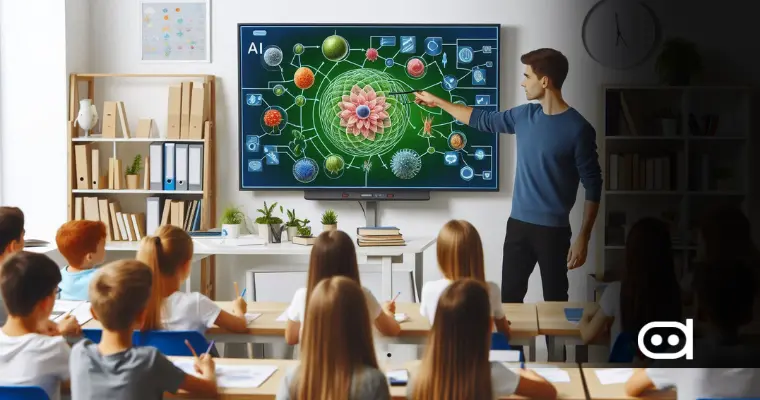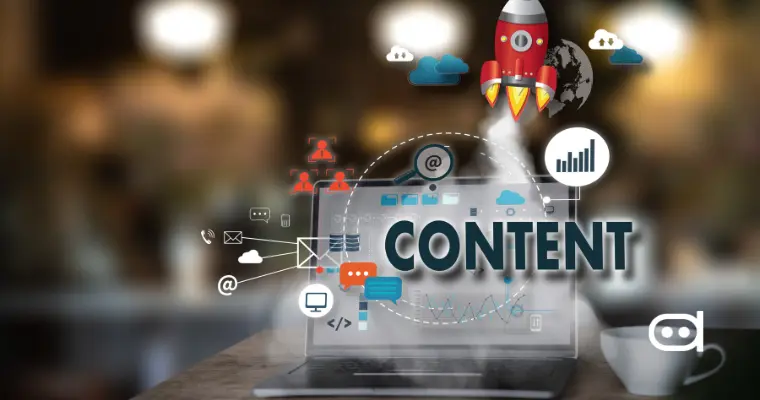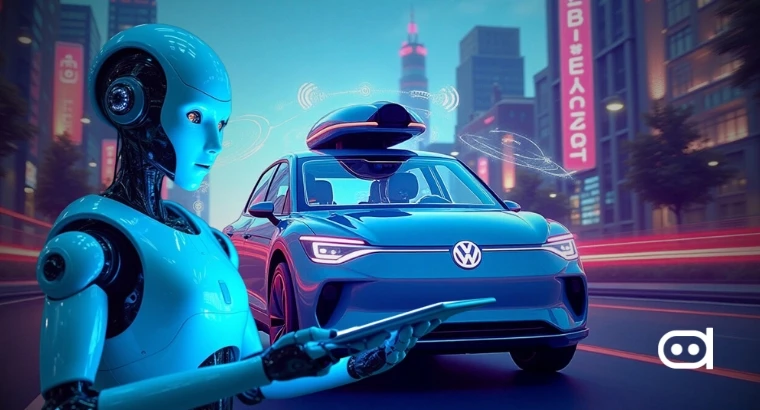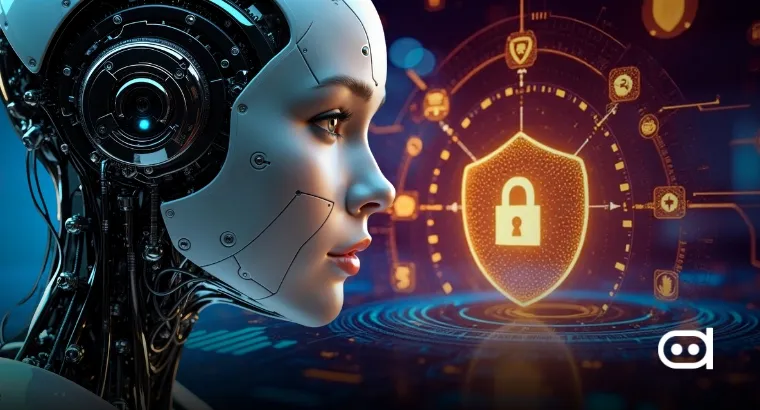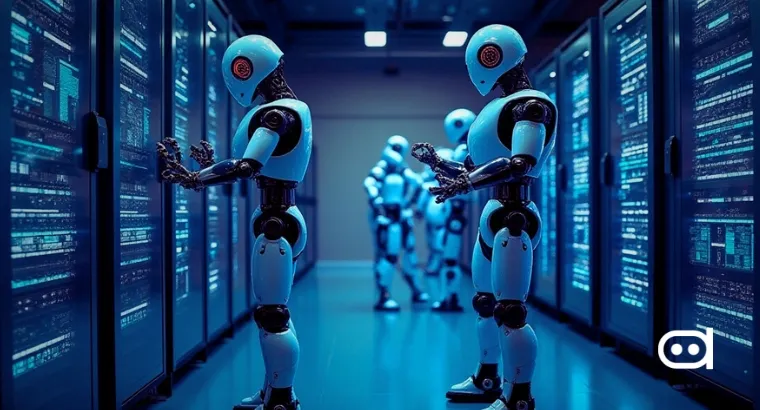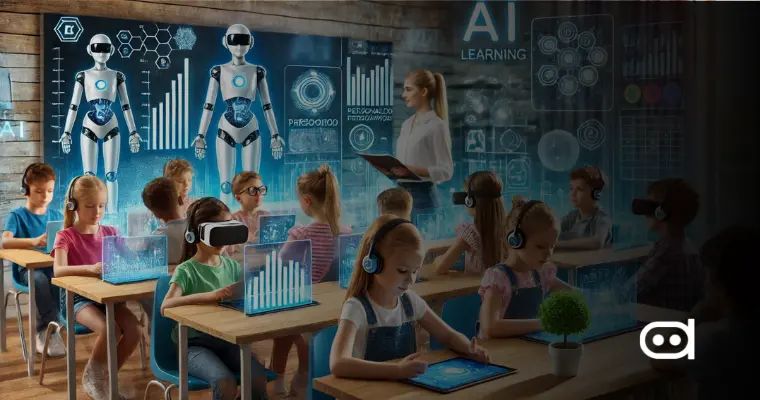
Artificial intelligence enhances learning to produce new dimensions in education with dynamic solutions. By evaluating the learner’s data and changing corresponding content, AI tools thus personalize the entire learning experience. AI tools for personalized learning help the teacher identify where to find common problems among learners, provide tailored assistance, and create a more engaging atmosphere for learning.
How AI Tools Support Personalized Learning
AI and personalized learning go hand in hand as they tailor content according to each student’s unique qualities. These include data-driven insights such as learning pace, formatting preferences, and performance tendencies. Based on these parameters, data analytics are applied, allowing AI to customize lesson plans, interactive exercises, and assessment tests to individual needs.
Adaptive and personalized learning AI platforms such as DreamBox and Smart Sparrow adjust the difficulties of tasks according to students in real time. This dynamic learning process ensures that students can achieve attainable goals set at their own pace. Using AI for personalized learning creates a formal learning environment that caters to all sorts of different needs that students may have.
Key Benefits of Personalized Learning Using AI
Improved Engagement and Retention
AI personalized learning encourages students by incorporating active and exciting elements, utilizing multimedia, gamification, and real-world experiences to enhance their learning experience. For example, Kahoot and Duolingo make learning more entertaining through the application of AI in their lessons. Students stay engaged through active participation with real-time feedback in interactive simulations, which makes retaining information easier to digest.
Tailored Feedback and Performance Data
AI systems offer students immediate, actionable feedback for prompt resolution, along with performance analytics that demonstrate progress against learning outcomes and identify areas that require improvement. AI-powered learning platforms like Grammarly and Mathway help students by offering personal recommendations based on the learners’ inputs.
Empowering Educators With Data-driven Insights
AI studies how students learn, understands their progress over time, and offers these data-driven insights for teachers to analyze. This way, teachers can determine the best approach for each student, which includes recommendations for further interventions. With tools like Edmentum and IBM Watson Education, a teacher can set up intervention strategies for all learning gaps while improving the student experience.
Efficiency for Teachers
Some of the AI tools for teachers, like GradeScope and Canvas, save teachers time by streamlining many repetitive aspects of the profession, such as grading and record keeping. Less time spent on administrative tasks means teachers have more time for lesson planning and individual student support.
Challenges of Implementing AI in Personalized Learning
While AI in education brings a lot of advantages, there are also certain challenges associated with implementing it for personalized learning. A few of the challenges are as follows:
Data Privacy Issues
The personalized AI learning system also raises several privacy and security issues. Schools must maintain excellent methods of data decryption and enforce strict data requirements in their policies. Compliance with regulations like the GDPR is crucial for safeguarding sensitive information.
Costs and Accessibility
The high cost of implementing AI personalized learning tools is often a disadvantage for underfunded schools and institutions, especially those in regions with poor monetary resources. Bridging the gap will require collaboration with governments and partnerships with technology companies. Open-access AI will also play a critical role in making education equitable.
Impact of AI on Personalized Learning in Education
The role of artificial intelligence in education has been huge in terms of creating a more engaged and tailored environment for students. AI supports teachers in streamlining tasks and personalizing learning by providing valuable tools that analyze performance data and diagnose learning gaps through advanced visualization. Real-time feedback also helps keep students focused and on track, polishing their overall learning experience.
AI does not replace teachers, but rather complements their educational purpose and improves the classroom through automation. There are substantial ingredients to the teaching process, like emotional sensitivity and creativity, that AI cannot replicate. This perfect blend of teachers and technology provides a highly effective approach to educational procedures.
Future of Personalized Learning with AI
The future of personalization in education will introduce even more innovative solutions that utilize artificial intelligence. An immersive personalized experience will be facilitated by natural language processing, predictive analytics, and augmented reality. However, while using AI, human engagement must be included in equal measure, preserving the essence of empathy and critical thinking in education.
For instance, future tools might foresee a gap in learning at the time of their inception and take preemptive actions. Since the human touch is irreplaceable, we will still need teachers to nurture creativity, emotional intelligence, and interpersonal skills.
Conclusion
AI tools are redefining personalized education with effective and efficient learning experiences for both students and teachers. AI-generated outcome-based feedback enables students to reach their maximum potential. On the other hand, automating repetitive administrative tasks gives educators the time required to nourish their creativity and individualize each student’s experience as well.
With advancements in AI technology, there is a tremendous potential to revolutionize education. However, before adoption, aspects such as privacy of data, accessibility, and equality in implementation must be addressed. Developing an innovative, compassionate, and value-adding experience for enhancing learning requires an ideal balance of human and AI involvement.

